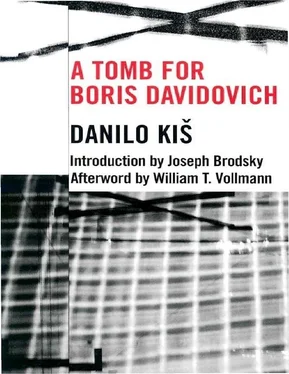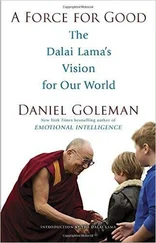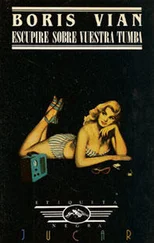Novsky realized that he had no choice. In exchange for a return favor from Fedukin, he signed the confession to the effect that Professor Rabinovich had collaborated with him in the making of explosives. The details concerning the kind of shrapnel and detonator; the destructive power of the gunpowder, dynamite, kerosene, and TNT; the method of construction, and place where the infernal machines were made, as well as their destructive power under particular conditions — all this Novsky himself dictated into the statement. In exchange, in front of Novsky, Fedukin burned in a big iron stove the compromising document (now useless) about the group of thieves and speculators.
In the middle of April, the trial of the saboteurs, now involving twenty members, was conducted behind closed doors. According to the testimony of a certain Snaserov, Novsky, despite his occasional obliviousness, spoke with a passion that Snaserov attributed to high fever. "It was his best political speech yet", he adds, not without malice (clearly alluding to those false rumors that Novsky was a poor speaker: the first premature sign of the destruction of the myth known as Novsky.) Another survivor of this trial, Kaurin, gives him credit, stating that, despite the horrendous torture to which he had been subjected during the many months of his interrogation, he did not lose any of his sharpness, "which overwhelmed us all" He also says: "Once he was an agile man with quick, lively eyes, and now he drags his feet, he is gaunt, his eyes deep In their sockets, and at times he seems totally absent; he looks like a ghost, but not his own. At least not until he speaks; then again he is more a devil than a man". It should be pointed out, however, that Novsky's role in this trial was greatly determined by the trade unions and the émigré press, which insisted that in the framework of this trial lurked hidden provocateurs who had nothing to do with revolutionaries. Therefore Novsky aimed the deadly power of his eloquence in that direction, trying in a fit of honest fury to demolish these arguments of the Mensheviks and the trade unions, which could reduce his biography and his end to that which he feared the most, and against which, all these months, he had fought a bloody battle to the death.
The state prosecutor, V. N. Krichenko, an expert on high treason, asked the highest punishment for the first five men indicted, but, to general astonishment, as Kaurin says, in his closing speech Krichenko did not "drag Novsky through the mud." (I tend to believe that the role of Novsky in this trial was bought at that price.) In a way he even gave Novsky credit, since Novsky was able to retain his integrity until the very end, in spite of every thing (as proved by his sincere cooperation with the interrogation). Krichenko even called him an “old revolutionary*” stressing the fact that Novsky had always been a fanatic in his Ideas and convictions, which in one fatal moment he had placed In the service of the counterrevolution and the international bourgeois conspiracy. Striving to find a scientific explanation for this moral deviation, Krichenko discovered it in the petit-bourgeois background of the accused, and in the destructive influence of his frequent visits to the West, during which he was more interested in literary trivia than in politics. In the Kolyma hospital, where he was lying half blind and sick with scurvy, old Rabinovich told Dr. Taube about the meeting that took place after the trial between himself and Novsky in the anteroom of the court. “Boris Davidovich", he had said to Novsky, "I’m afraid that you must be out of your mind. You'll bury us all with your plea." Novsky answered him with a strange expression on his face, which seemed to be the shadow of a smile. “Isaac Ilich, you should know the Jewish funeral custom: at the moment when they are ready to take the corpse from the synagogue to the cemetery, one servant of Yahweh bends over the deceased, calls him by name, and says in a loud voice: 'Know that you are dead!'" He paused a moment, then added: “An excellent custom!"
As a sign of gratitude — and probably convinced that he had got out of death the most a living man could — Novsky insisted in his final speech that his crimes fully deserved the death sentence as the only just punishment, that he did not find the decision of the prosecutor too severe, and would not appeal the case to save his life. Since he managed to avoid the noose of the shameful gallows, he considered death before a firing squad a happy and fitting ending; even outside this moral context, he must have felt that some higher justice demanded that he die by steel and lead.
But they did not kill him (it is more difficult, it seems, to choose death than life): the sentence was reduced, and after one year in the shadow of death, he embarked again on the hard road of exile. At the beginning of 1934, under the name Dolsky — the same one he had adopted during his last imprisonment under the Czar — we find him in the recently colonised Turgay. (One should not try to find in his change of names a message for the future, a sign of defiance and provocation, for Novsky was guided primarily by practical considerations: some of his documents still bore that name.) The same year he received permission from the government to settle In the even more remote Aktyubinsk, where, surrounded by suspicious colonists, he worked on a farm growing sugar beets. In December, his sister was granted permission to visit him, and found him ill: Novsky complained of pains in his kidneys. By this time he had permanent dentures made of stainless steel. (Whether his teeth were broken during the interrogation, as Dr. Taube maintained, is difficult to say.) Novsky refused her suggestion that she try to obtain permission for his transfer to Moscow: he did not want to loot the world in the eye. "He expected death during the early morning hours," she writes, "which coincided with those of his arrest: his body rigid, glassy-eyed, he'd stare in the direction of the door, which even so he never locked. When three o'clock had passed, he'd pick up his guitar and softly sing entirely unintelligible songs. He had auditory hallucinations and heard voices and footsteps in the hallway,” (In those years the following anecdote made the rounds in Moscow: "What's our Novsky doing?" "He's drinking tea with currant jam and playing the 'International' on the guitar." “But with a mute," someone would add maliciously.)
It is known that Novsky was arrested again during the terrible winter of 1937 and taken somewhere. The next year we uncover his tracks in distant Insulma. The last letter written by him has the postmark of Kem, in the vicinity of the Solovecski Islands.
The continuation and the end of Novsky's history is based on Carl Fridrichovich (who mistakenly calls him Podolsky, Instead of Dolsky); the setting: the distant, icy North, Norilsk.
Novsky disappeared from the camp in a mysterious and inexplicable way, most likely during one of those awful storms when the tower guards, the firearms, and the German shepherds were equally helpless. After the storm had died down, the pursuers set off in search of the fugitive, relying on the bloodthirsty instinct of their dogs. For three days the camp inmates awaited in vain the command "Get out!”; for three days the furious foaming German shepherds struggled to wrest free from their steel collars, dragging the exhausted pursuers over deep snowdrifts. On the fourth day, a guard spotted Novsky at the ironworks, unshaven and looking like an apparition, warming himself next to the furnace. They released the German shepherds. Following the howls of the dogs, the pursuers burst into the foundry building. The fugitive was on the ladder at the top of the furnace, illuminated by the flames. One eager guard began to climb up. As the guard approached him, Novsky leaped into the boiling mass. The guards saw him disappear before their very eyes; he rose like a wisp of smoke, deaf to their commands, defiant, free from German shepherds, from cold, from heat, from punishment, and from remorse.
Читать дальше









